Mirrors are more than just functional—they’re a powerful design tool. With the right placement and style, mirrors can reflect light, create the illusion of more space, and add a touch of sophistication to any room. They’re especially effective in smaller or darker spaces where they can transform the atmosphere entirely.
I still remember the first time I used mirrors to brighten my home. My living room had only one window, and the space always felt a bit dim. By placing a large mirror opposite the window, it reflected the natural light and instantly made the room feel brighter and more open. From that moment on, mirrors became one of my go-to tricks for enhancing spaces.
In this guide, I’ll share tips on how to use mirrors to bring light, depth, and elegance to your home, no matter the size or style of your space.
Why Mirrors Work Wonders in Design
Mirrors amplify natural and artificial light, trick the eye into seeing more space, and add a decorative element to your room. Whether you want to make a small room feel larger, brighten a dim corner, or add a statement piece, mirrors are a versatile and impactful choice.
1. Position Mirrors Opposite Windows
Why It Works
Placing a mirror opposite or adjacent to a window reflects natural light, making the room feel brighter and more open.
How to Do It
- Hang a large mirror directly across from the window to maximize reflected light.
- Use multiple smaller mirrors to bounce light around darker corners.
- Choose a mirror with a simple or frameless design to avoid overpowering the space.
Example:
A floor-to-ceiling mirror opposite a French door can fill the room with natural light and create the illusion of a second window.
2. Use Mirrors to Create Depth
Why It Works
Mirrors trick the eye into seeing more space by reflecting walls, furniture, and decor, creating an illusion of depth.
How to Do It
- Place a large mirror at the end of a hallway to make it feel longer.
- Hang mirrors in narrow spaces, like entryways, to visually expand the area.
- Use mirrored panels or tiles to create a continuous reflective surface.
Styling Tip:
A round mirror at the end of a short hallway softens the lines and adds visual interest.
Picture Gallery
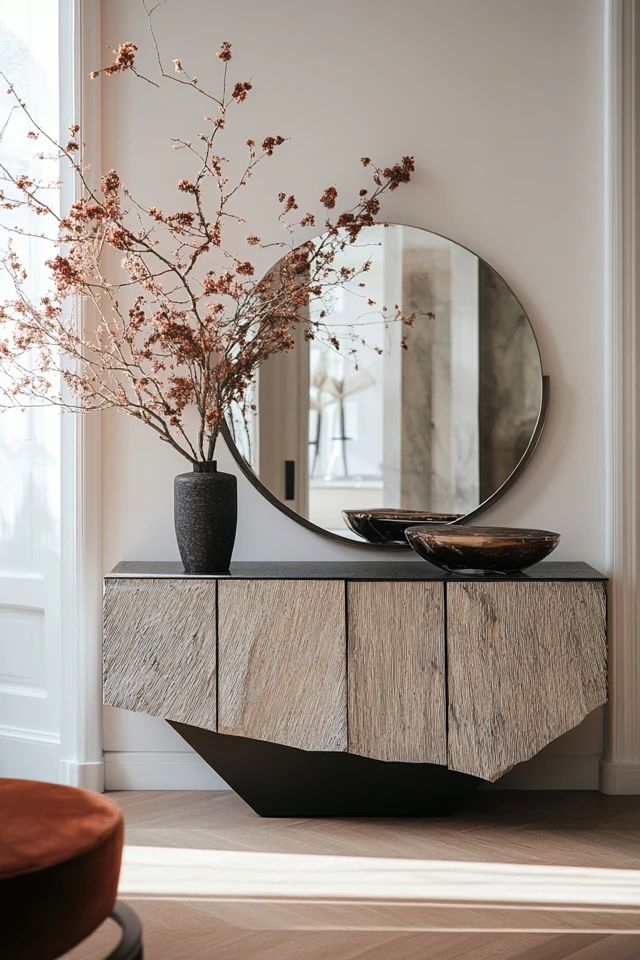
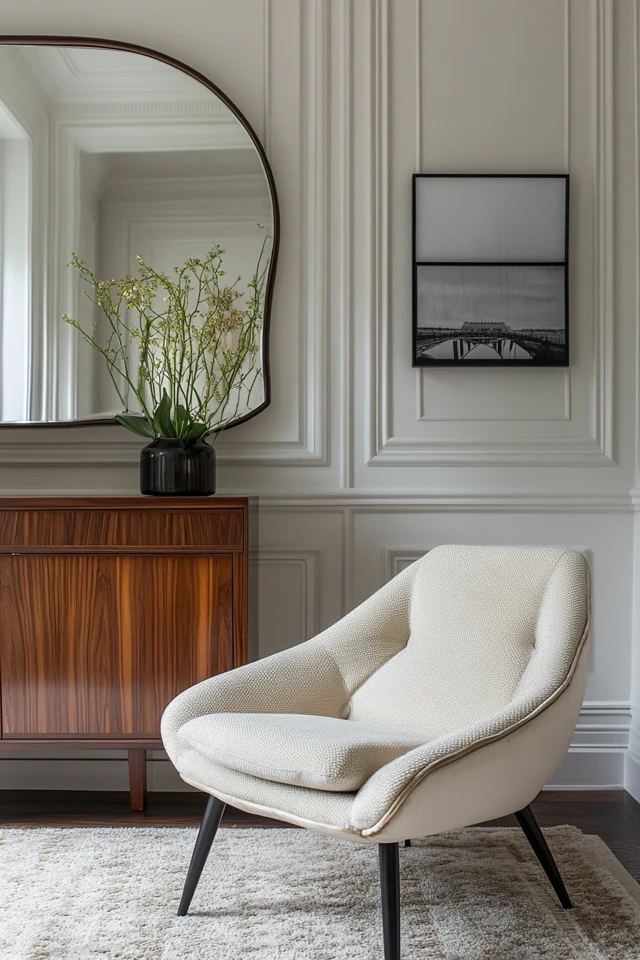
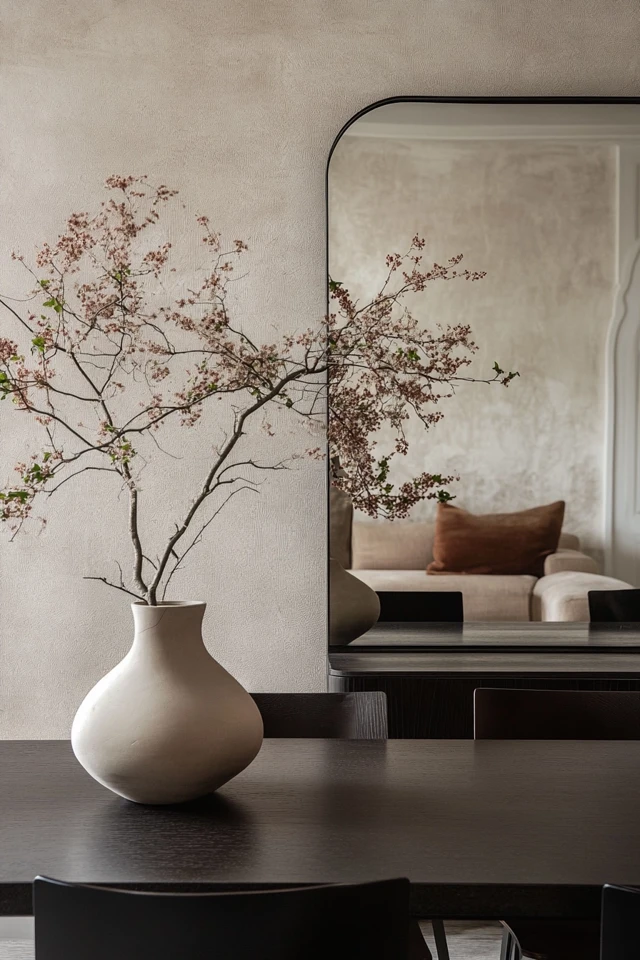
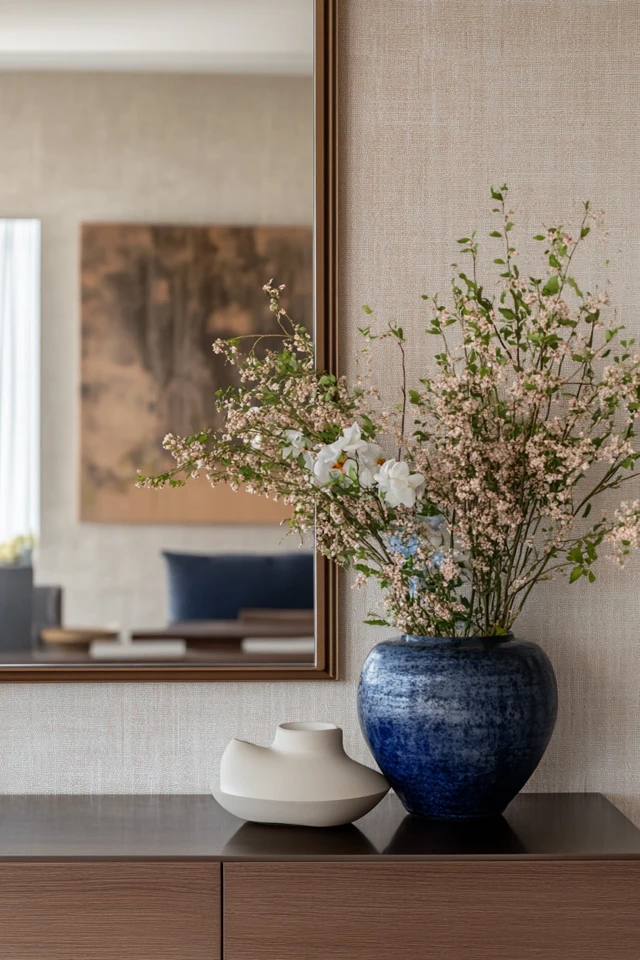
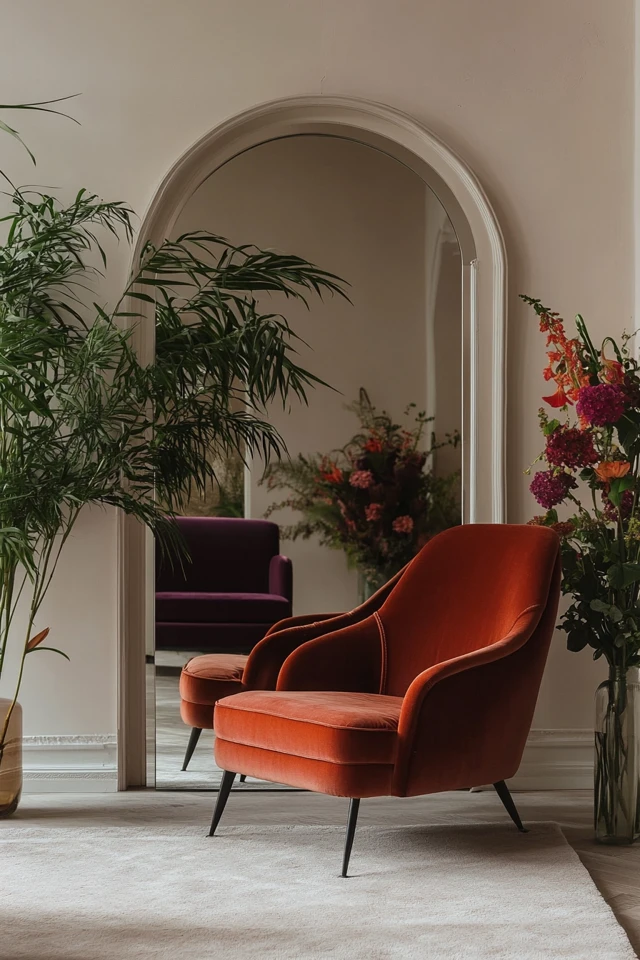
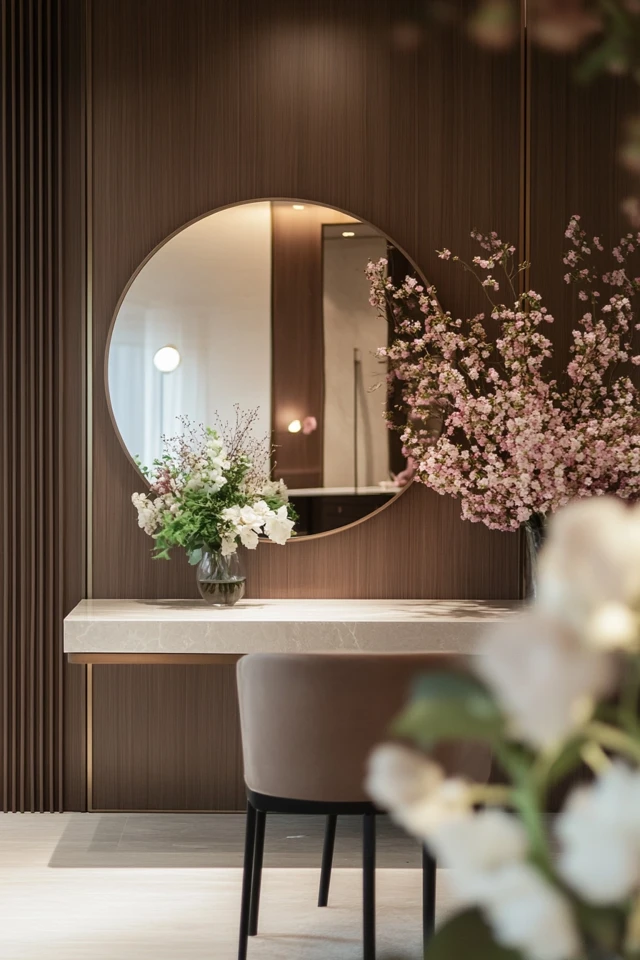
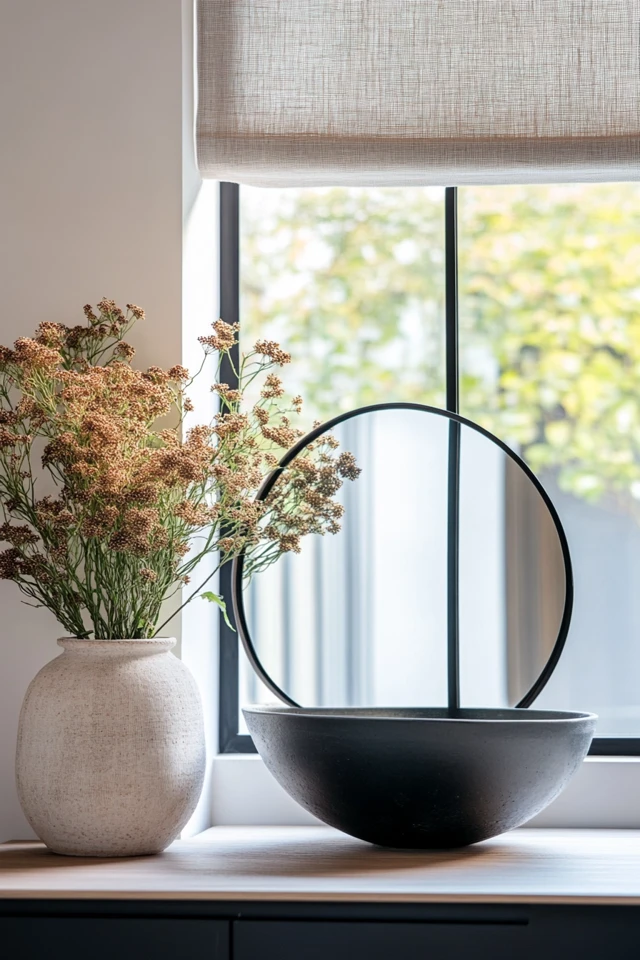
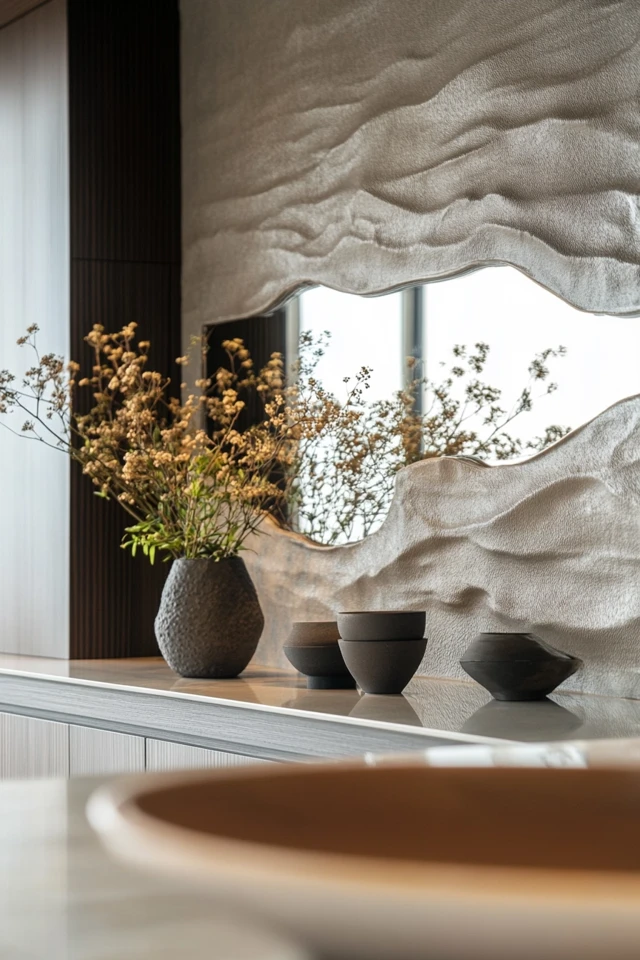
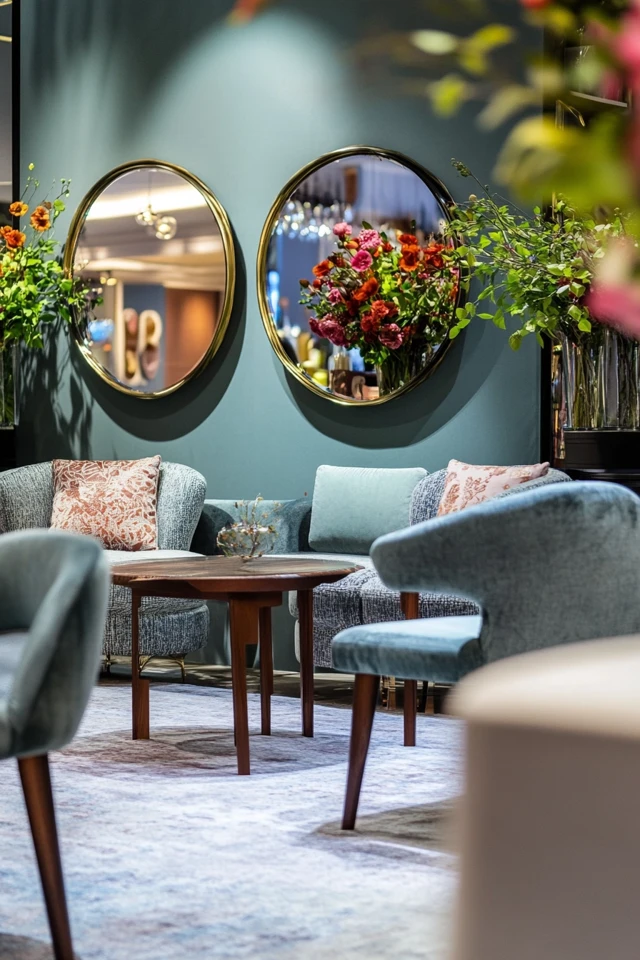
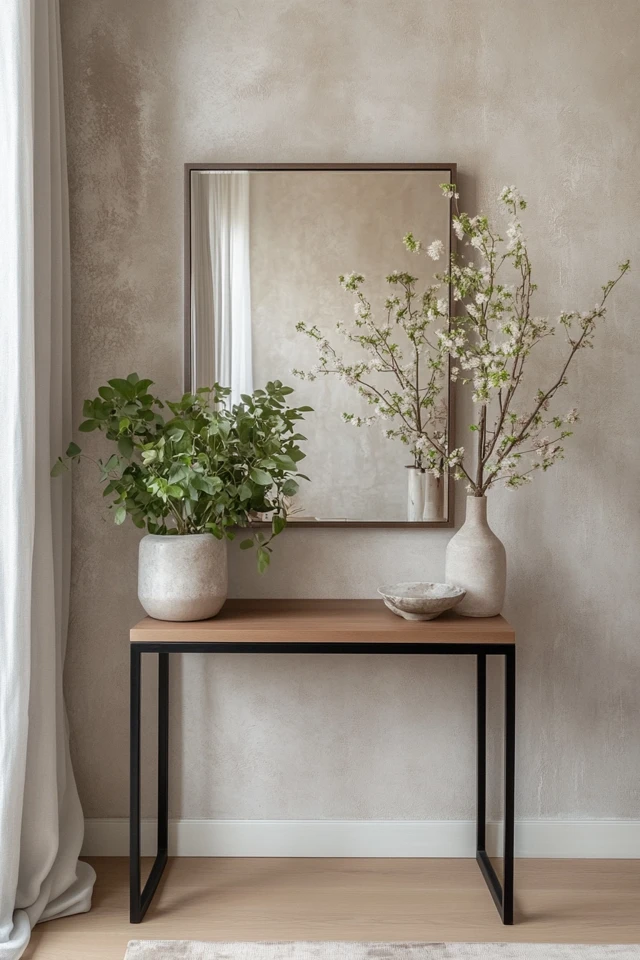
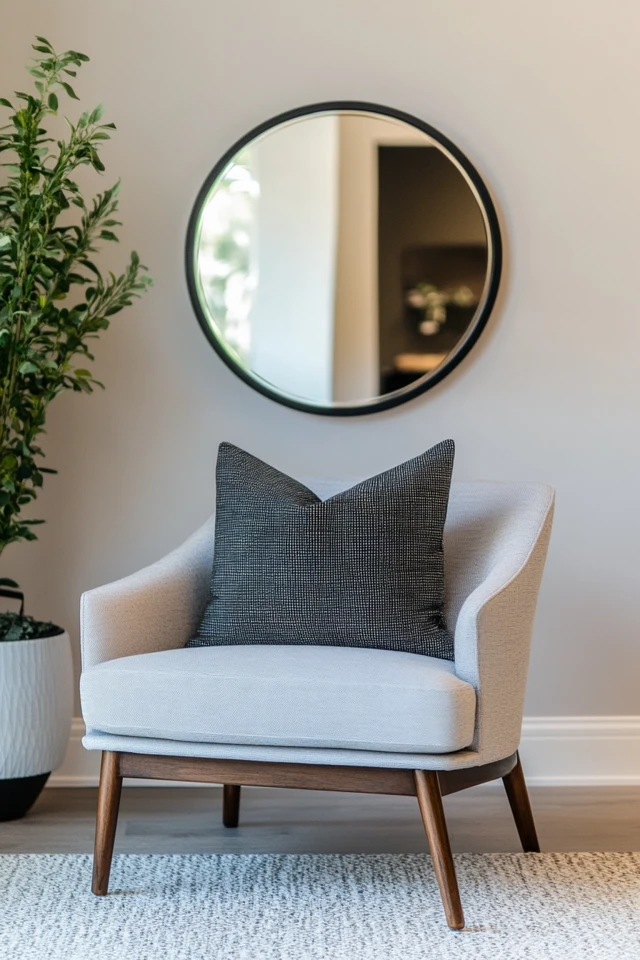
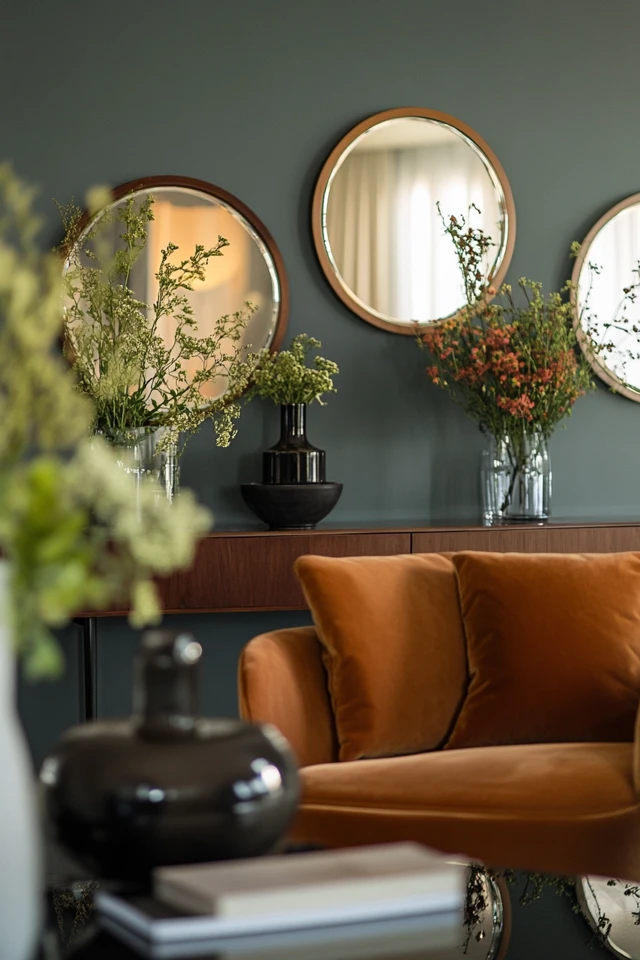
3. Layer Mirrors for a Unique Look
Why It Works
Layering mirrors adds dimension and creates a sophisticated, layered effect.
How to Do It
- Hang mirrors of varying sizes and shapes in a cluster for a gallery wall effect.
- Lean a smaller mirror in front of a larger one on a mantel or console table.
- Combine mirrors with other decor items, like vases or artwork, for a curated vignette.
Example:
A vintage mirror layered with modern ones on a shelf creates a mix of textures and styles.
4. Use Oversized Mirrors to Make a Statement
Why It Works
Large mirrors not only reflect light but also act as bold focal points in your room.
How to Do It
- Lean an oversized mirror against a wall for a casual yet dramatic look.
- Choose a mirror with a decorative frame to add character and style.
- Use floor mirrors in bedrooms or living rooms to reflect both light and furniture.
Styling Tip:
A tall, gold-framed mirror in a living room corner adds elegance and enhances the vertical space.
5. Enhance Lighting with Mirrors
Why It Works
Mirrors amplify the effect of existing light fixtures, creating a brighter, more welcoming atmosphere.
How to Do It
- Place a mirror behind a table lamp or wall sconce to reflect and multiply the light.
- Use mirrored surfaces on furniture, like side tables or trays, for subtle reflection.
- Add a mirror above a fireplace to bounce light from nearby fixtures or candles.
Example:
A round mirror above a fireplace reflects the glow of candles, creating a warm and cozy ambiance.
6. Choose Unique Mirror Shapes
Why It Works
Unconventional mirror shapes double as functional art, adding personality and flair to your space.
How to Do It
- Use asymmetrical or geometric mirrors to create a modern, edgy look.
- Incorporate arch- or oval-shaped mirrors for a soft, classic touch.
- Opt for sunburst or decorative-framed mirrors to make a bold statement.
Styling Tip:
A hexagonal mirror above a minimalist console table adds a touch of contemporary charm.
7. Pair Mirrors with Natural Elements
Why It Works
Combining mirrors with natural materials creates a harmonious, balanced aesthetic.
How to Do It
- Hang a mirror in a wooden or rattan frame for a natural, earthy vibe.
- Place a mirror behind plants to reflect greenery and create depth.
- Use mirrors to highlight outdoor views by reflecting them into the room.
Example:
A rattan-framed mirror hung above a wooden bench creates a warm, organic look in an entryway.
8. Use Mirrors in Unexpected Places
Why It Works
Placing mirrors in less traditional spots adds an element of surprise and enhances overlooked areas.
How to Do It
- Add mirrors inside closets or behind cabinet doors for extra light and functionality.
- Use mirrored backsplashes in kitchens or mirrored panels on furniture for subtle reflection.
- Hang a mirror in your garden or balcony to reflect greenery and expand the view.
Example:
A mirrored backsplash in a small kitchen reflects light and creates a sense of openness.
9. Layer Mirrors Over Wall Art
Why It Works
Mirrors layered over art create a dynamic, layered effect that blends function and decor.
How to Do It
- Hang a small mirror in front of a larger canvas or print to add depth.
- Choose mirrors with transparent frames to avoid overshadowing the art.
- Use this technique sparingly to keep the display from feeling cluttered.
Styling Tip:
A small oval mirror overlapping a large abstract painting adds dimension to a gallery wall.
10. Combine Mirrors with Lighting Fixtures
Why It Works
Mirrors strategically paired with lighting fixtures enhance both the brightness and the style of your room.
How to Do It
- Install a mirror behind a chandelier or pendant light to double the glow.
- Pair wall sconces with a mirror for a symmetrical, polished look.
- Use mirrors to reflect natural light from nearby windows or doors.
Example:
A mirror behind a chandelier in a dining room amplifies the light and adds an air of luxury.
How to Maintain Your Mirrors
- Clean Regularly: Use a glass cleaner or vinegar solution to keep mirrors streak-free and reflective.
- Dust Frames: Keep mirror frames clean, especially ornate or textured ones, to maintain their appearance.
- Secure Properly: Ensure mirrors are securely mounted, especially oversized or leaning mirrors.
- Protect from Humidity: In bathrooms, use mirrors designed to resist moisture to prevent warping or tarnishing.
- Inspect Placement: Adjust mirrors occasionally to ensure they’re reflecting the best light and angles in the room.
Conclusion
Mirrors are a versatile design element that can brighten, enlarge, and elevate any room. By thoughtfully positioning them, experimenting with shapes and styles, and using them to reflect light and views, you can transform your space into one that feels brighter, airier, and more dynamic.
When I started incorporating mirrors into my home, it was like unlocking a new level of design potential. A single mirror placement changed the feel of my living room, making it more welcoming and polished.
So, grab a mirror (or two), get creative with placement, and enjoy the instant elegance and depth they bring to your space!
FAQ
Where should I place mirrors to make a room look bigger?
Place mirrors opposite windows or behind furniture to reflect light and create the illusion of more space.
What size mirror works best in small spaces?
Opt for large mirrors to maximize light and depth, but ensure they fit proportionally within the space.
Can mirrors be used in every room?
Yes! From bathrooms to bedrooms, living rooms, and kitchens, mirrors enhance light and style in any space.
What are some budget-friendly ways to use mirrors?
Thrift stores and flea markets are great places to find unique, affordable mirrors. DIY options like adding decorative frames or paint can also elevate a basic mirror.
How do I clean mirrors without leaving streaks?
Use a microfiber cloth with a glass cleaner or vinegar solution, wiping in a circular motion for a spotless finish.


